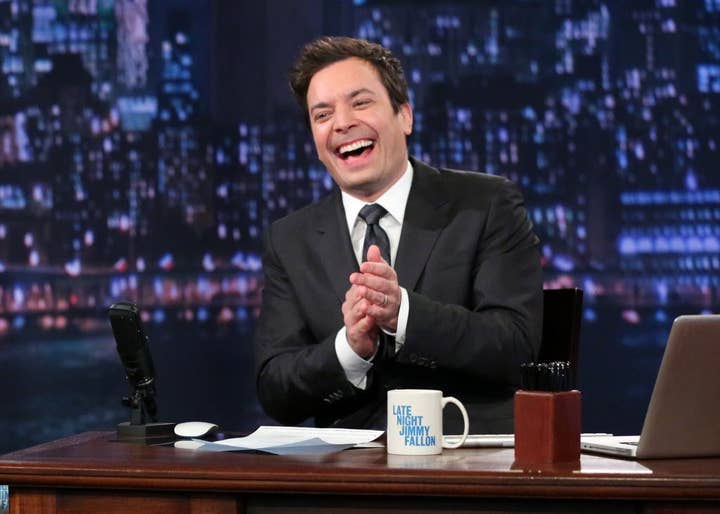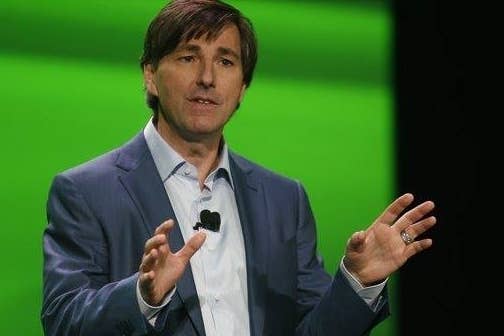Roundtable: Retreating across the Rubicon
What Microsoft's capitulation means for the next-gen balance of power
The issue hardly needs an introduction. Microsoft's reversal of its Xbox One DRM policy, a climbdown of Everest proportions, is perhaps a bigger story in itself than the furore which surrounded the confused and confusing announcement of the policies to begin with. Vox populi speaks loud and legion - and the ears of the powerful would apparently do well to listen. The internet has won, the consumer has won, Sony has won, depending on who you listen to.
But it's not that simple, really. How has this change been implemented so rapidly when we were told it was such an integral part of the machine and the ecosystem surrounding it? Do multinationals really swallow their pride so rapidly in public like this, or is everyone missing something in the rush to the second-hand store? Read on for the GamesIndustry International team's first impressions.
James Brightman
"Sony still has a leg up on Xbox One thanks to its $399 price and far more indie friendly stance, but at least the new Xbox now has a fighting chance"
The fact that Microsoft reversed its policies didn't come as a shock to me. In fact, I had been anticipating it ever since Jack Tretton threw his proverbial uppercut at Microsoft's chin as the audience in the Los Angeles Memorial Sports Arena erupted in applause. It was, in my opinion, the only logical course of action to take. What surprised me, however, was the speed with which Microsoft back-pedalled. Don Mattrick's legs must be in fine shape from all that pedalling! Microsoft knew that it had to act quickly, as the damage seemed to get worse by the day. In fact, I wouldn't be surprised if Microsoft had been spurred on in part by Jimmy Fallon who brought up the used games problem while hosting PS4 architect Mark Cerny. When the host of Late Night is seeding the mainstream with bad vibes about your console, you know you're in deep trouble. It's like the original Wii strategy, only in the completely wrong direction!
Microsoft did what it had to do. Let's not forget that this is a long, long battle. Who knows how long this upcoming console generation will last, but if Xbox One serves up some amazing software not sold on PS4, will anyone really care about this PR nightmare a year or two from now? No, it will be a distant memory, just as Sony's horrendous $599 PS3 launch is now. Admittedly, Sony still has a leg up on Xbox One thanks to its $399 price and far more indie friendly stance, but at least the new Xbox now has a fighting chance.
With this boneheaded strategy behind it, Microsoft must now put all its energy from now until launch into (a) making sure that everyone understands that its policies are now the same as on Xbox 360, and (b) ensuring that consumers have a plethora of gaming content to get excited for. Mattrick or Spencer need to make the rounds on talk shows, evangelizing for the Xbox One like Tom Cruise would for one of his upcoming films. The fact that Microsoft acted so quickly means the company has ample time now to get the right message out - but for God's sake Microsoft, please figure out exactly what that message is first. Because you looked like a bunch of bumbling fools who couldn't walk and chew bubble gum for the last few weeks.
Dan Pearson
Hindsight is 20/20, so they say, so it's not surprising to see more than a few people nodding sagely and saying 'I told you so' this morning, and I'm afraid I'm going to be one of them. In truth, the writing has been on the wall since E3 - even a brand like Xbox couldn't whether a storm of public opinion that strong. However, the rapidity and the totality of the turnaround has been astonishing, especially given that most people would be more willing to associate Microsoft with hubris than chagrin.
So now we know what happens when the irresistible force of market evolution meets the immovable object of public opinion: the money wins. All that work, all that money, all that risk and it didn't pay off. I've said it before, but it's worth reiterating - this was a billion dollar prisoners' dilemma. Sony put Microsoft in the hole briefly, but there's been a reprieve and the signature at the bottom reads: customers.

There's one thing more powerful than giving people what they want, and that's making them think that they made you do it.
Forgive me for what might seem like a little revisionism here, but surely there must have been a button marked Plan B all along? This was a massively risky strategy. Almost every single time the customer has encountered new methods of securing DRM over the course of the last few years, it has resulted in opprobrium, uprising, petitions and outrage. Microsoft knew - for all of the garnish of sharing, of digital reselling, of the promise of a better ecosystem - that this was going to be an unpopular decision. As Rob wrote last week, this is not a company in the habit of employing idiots.
Now, I'm not suggesting a conspiracy, here. I don't for a second believe that Microsoft didn't want the plan it laid out first to succeed - you don't throw away a PR opportunity like E3 on a double bluff - but they were aware that it might backfire, that the draw of the concessions made to digital sharing might not be enough, even if they believe they will inevitably have to become the accepted norm at some point. There was always the option to climb down, especially if Sony weren't willing to venture out on the same limb. This is still a pretty negative outcome, of course, but there is a spin here, as so wonderfully exhibited in the official statement. I, for one, couldn't help but read it in a gravelly, reluctant and sarcastic tone, an apology through gritted teeth. Perhaps it's something to do with the uncanny valley of cultural dissonance between the US and UK, but I took those paragraphs as a masterclass in passive aggression.
Still, Microsoft does appear to have done an incredible thing, turning all-out vitriol into a people's victory. Pre-orders, previously disastrous, are picking up and less obvious gripes, like the snooping Kinect and a tense relationship with indies, are sneaking through under the fanfare. This might have been a brave foray into new territory, but the rapidity of the retreat shows indubitably that Microsoft's forces were never fully committed. The ideas will not go away, this was a very public piece of reconnaissance. Schroedinger's cat is back in the box - this time it was dead when the public pulled back the lid, but next time it might come out fighting.
Mike Williams
So, that happened. Microsoft stared deep into chasm between their digital hopes and the reality of consumers... and they blinked. The company went into E3 knowing that they had an uphill battle with their always-online DRM, but they stuck to their guns. Sony walked into E3 and dealt Microsoft a crushing blow, and now Microsoft looks like it's behind the game.
"Microsoft, here's a freebie: give a bunch of Xbox One consoles to active-duty military"
That said, I have to give Microsoft kudos for not leaping headfirst into a disastrous launch. The Xbox One is still $100 above Sony's PlayStation 4, but there's no way for Microsoft to fix that without offering a Kinect-free model. They showed off a bunch of great games at E3, but Sony's slate was equally good. Now Microsoft has to convince consumers that the new Kinect is the next entertainment centerpiece. Marketing will need to be on point to make that happen.
Microsoft, here's a freebie: give a bunch of Xbox One consoles to active-duty military. It will win you back some of the love you lost with your previous stance.
Rachel Weber
Personally speaking, the Xbox 180 (that's what we're calling it right?) has been a disaster for me. My boyfriend predicted it when things started to look sour for Microsoft, so I'm in for at least two weeks of told you sos.
What I'd really like is to be a Kinect on the table at the meetings that lead to the decision. Was it public pressure, the gigabytes of internet opinion, the "candid feedback," the jokes spewed out by American TV hosts that made this happen? It would be nice to think so, that Microsoft saw its gamers were unhappy and decided to listen. But then if that were the case they never would have tried to introduce such measures in the first place. What's more likely is that they saw they were giving Sony an easy win, not just with consumers but with retailers. Whatever fancy methods you come up with for selling on games, the move was going to damage the pre-owned market, at least from Mr Gamestop's perspective, and for now Microsoft still needs him on side.

We'll see these policies come back, but at a later date, in a few years when just the initials DRM don't make everyone nervier than a clicker at a disco. The truth is a lot of people are already OK with the way the digital world works, my younger family members are all about Spotify and Netflix, the idea of physically purchasing and hoarding a product is as quaint as asking them to bake their own bread. Steam has shown PC players are pretty much fine with it, and they've been rewarded with more innovation and cheaper games. I'm not saying aspects of the anger at the original policies weren't valid, but a lot of the people getting the rage over daily online check ins were also going all twinkly eyed over Titanfall, the online game.
For now, let's all celebrate gamers getting what they want, Microsoft making an unprecedented decision and me being ahead of the game in the Xbox One pre-order queue.









